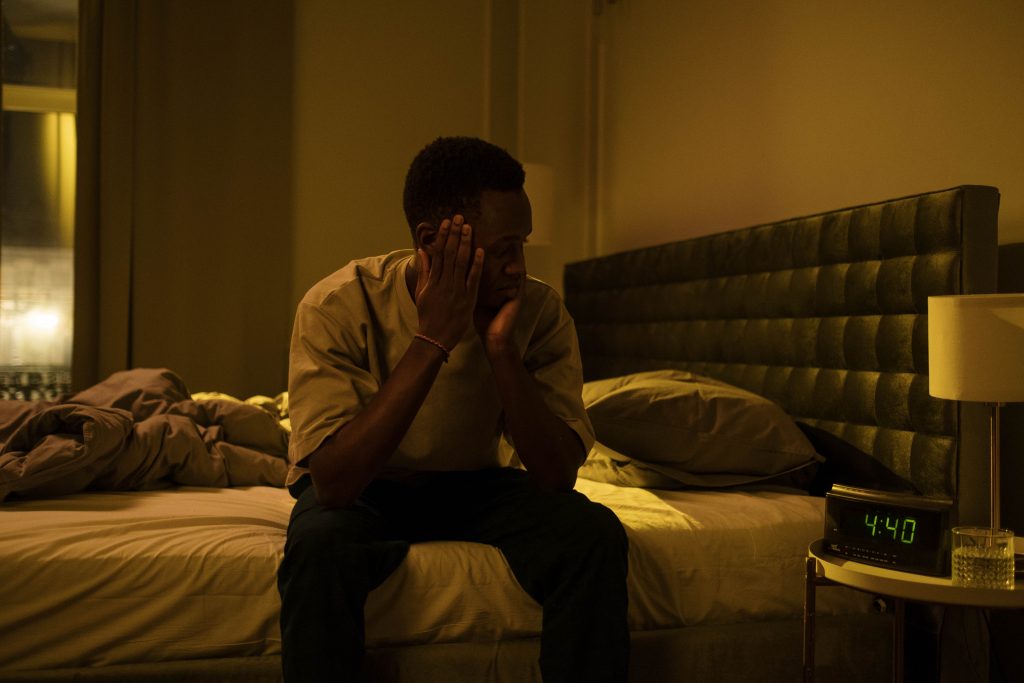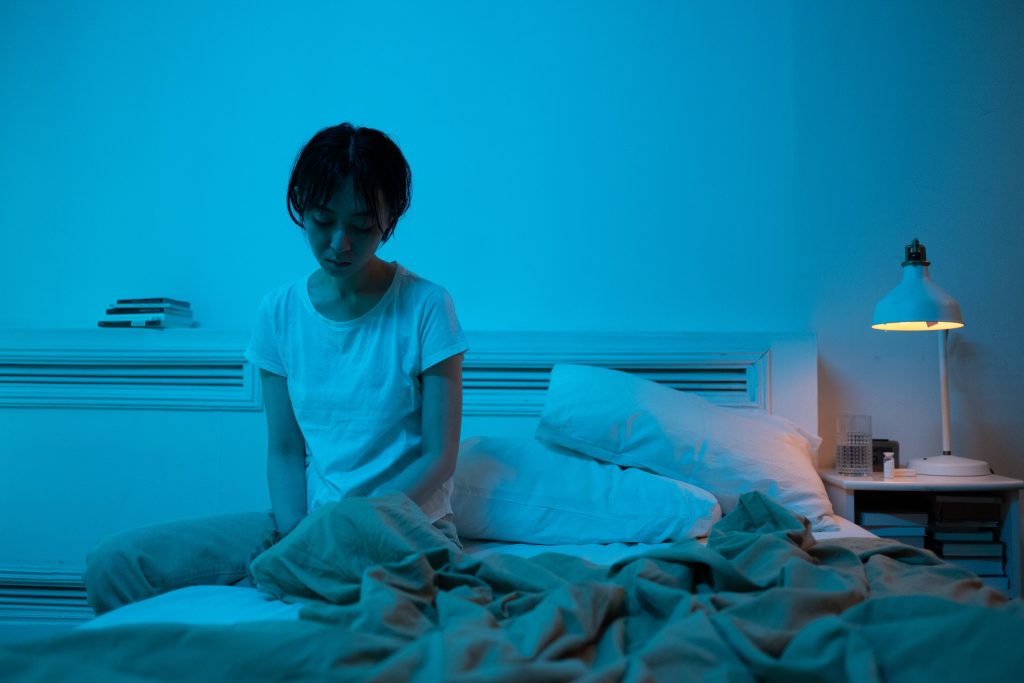5 Signs Of Nighttime Depression

Hey, Psych2Goers! Before we get started, this is a disclaimer that this article isn’t meant to diagnose, treat, or cure anyone. It is our best take on describing a complicated, personal mental illness, not a comprehensive analysis. It is for informative purposes only, so if you or someone you know may be struggling, we urge you to seek professional help from a therapist or another trusted professional.
Have you heard of nighttime depression? Much like the name suggests, it’s the phenomenon of depressed, hopeless feelings intensifying at bedtime. It has many causes, some of which include insomnia, ruminating at night, and circadian rhythm disruptions. However, many people may not realize they’re suffering from this or simply dismiss it as unimportant. In reality, nighttime depression is real, and you could be experiencing a moderate form of it without even knowing. Want to learn more about what it looks like? Here are 5 signs of nighttime depression!
1. Feeling dread of waking up the next morning
At night, do you dread getting up tomorrow only to “have to do it all over again?” Many people suffering from depression struggle to find joy and meaning in life. This can make living feel exhausting and the thought of repeating days over and over daunting. These thoughts can intensify at night when there are no distractions, so they begin to ruminate about how hopeless life seems. After a while, they may get lost in thought and spiral into a negative thinking cycle. If this describes you at night, you may be suffering from nighttime depression. Try to recognize when your thoughts are spiraling like this and plan coping strategies with the help of a loved one or trusted professional.

2. Being exhausted but unable to “switch off” your mind
When you’re lying in bed trying to fall asleep, what do you think of? Many people suggest counting sheep or another mindless task to help drift off. However, people with depression sometimes aren’t able to stop thinking or “switch off” their minds like that. They may begin to replay embarrassing scenarios in their head, hyper-focus on everything going wrong in their life, or contemplate how hopeless things seem. No matter what they say to reassure themselves, or how exhausted they get, their mind just won’t stop running at a million miles per hour. Does this sound like you? If so, you may be suffering from nighttime depression, anxiety, or a combination of both.
3. Feeling hopeless because sleep doesn’t rejuvenate you
Are you tired all the time? This is a major symptom of depression since sometimes regardless of how much sleep someone with it gets, they’ll still wake up exhausted. This constant tiredness can make sleep seem pointless or like a chore. After a while, they may begin to feel hopeless because sleep isn’t providing the relief they need. Nighttime depression can be both a cause and symptom of sleep not rejuvenating you, so if you struggle with this complex problem, it’s best to seek professional help from a therapist or sleep psychiatrist.

4. Feeling unsafe due to night terrors or sleep paralysis
Do you suffer from night terrors? They’re a common symptom of depression, so you are not alone. Many people with depression have insomnia and increased anxiety, which tends to cause night terrors and sleep paralysis. Night terrors are episodes of screaming, intense fear, and flailing while still asleep. Similarly, sleep paralysis is a feeling of being conscious but unable to move when a person passes between stages of wakefulness and sleep. Both are incredibly stressful and traumatic, often causing you to wake up multiple times in the middle of the night in either hot or cold sweats. If this sounds like you, don’t be afraid to reach out for help! Night terrors aren’t childish or something to be ashamed of, so don’t feel as if you need to deal with them alone.
5. Leaving noisemakers on all night
Do you leave the T.V, radio, or another noisemaker on all night? While this helps some people sleep naturally, it’s also a sign of nighttime depression. Many people with depression leave them on because, without distractions, the silence can be deafening. Their mind will go on overdrive imagining worse-case scenarios, and they may become hyperaware, paranoid, and anxious. Sometimes, being alone with your thoughts is the worst feeling in the world. If you relate to this, you might have nighttime depression.

The bottom line is nighttime depression is more common than most people expect. It can be a traumatic experience, so if you know anyone going through it, try to be as empathetic, patient, and kind as possible. If you yourself are suffering from it, you have our support and encouragement and as always, don’t be afraid to ask for help. It doesn’t make you weak, crazy, or a burden. After all, your well-being is important and deserves to be taken care of!
Do any of these signs apply to you? If so, what are you going to do to cope with nighttime depression? If not, did you learn anything new from this article? Feel free to comment down below your thoughts, experiences, or suggestions!
References
- J. G. Rodríguez-Ruiz, C. E. Galván-Tejada, S. Vázquez-Reyes, J. I. Gálvan-Tejada and H. Gamboa-Rosales. (2020, June 2). “Nighttime Depression Episodes Classification using a Formal Method: Knowledge Discovery in Databases,” 7th International Conference in Software Engineering Research and Innovation. https://ieeexplore.ieee.org/abstract/document/9105576
- Erickson, B., & Steers, W. (2014, September 1). The Association of Depression, Anxiety and Nocturia: A Systematic Review. The Journal of Urology. https://www.auajournals.org/doi/abs/10.1016/j.juro.2013.03.126.
- Lancee, J. (2015, December 11). When Thinking Impairs Sleep: Trait, Daytime and Nighttime Repetitive Thinking in Insomnia. Behavioral Sleep Medicine. https://www.tandfonline.com/doi/full/10.1080/15402002.2015.1083022.




Responses